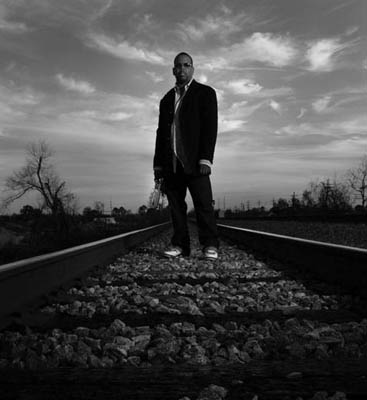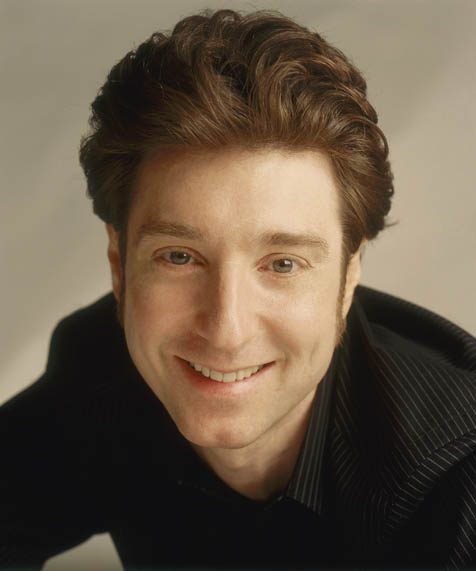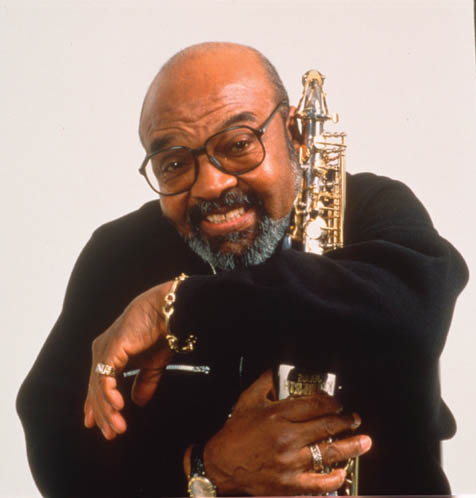An Interview with Terence Blanchard of the Monterey Jazz Festival Orchestra
Jazz and God's Will

When the Monterey Jazz Festival turned 50 last September, the golden anniversary celebration took many forms, from freshly commissioned orchestral works and newly released live recordings to the formation of a touring band deliberately chosen to represent the breadth and vitality of the festival today. This group-billed as the Monterey Jazz Festival 50th Anniversary Tour, and appearing on Monday, January 14, at UCSB’s Campbell Hall-is the kind of “dream team” that typically only happens at the big jazz festivals.

Pianist Benny Green will be in charge of the arrangements, and that is good news for everyone concerned, as the Berkeley-born Green has a brilliant, hard bop style and came up through extended gigs with Art Blakey’s Jazz Messengers and Betty Carter, while saxophonist James Moody lends tremendous excitement and experience to everything he touches. His first album for Blue Note was recorded in 1948, and Moody is still going strong at 82. Vocalist Nnenna Freelon has been nominated for five Grammys, including one in 2005 for Blueprint of a Lady: Sketches of Billie Holiday. Expect her to bring not only her traditional songbook, but also a penchant for jazzing up more popular material, like the songs of Stevie Wonder.

Even alongside these distinguished collaborators, trumpeter/composer Terence Blanchard stands out. He’s nominated for two Grammys this year-and took home the honor in 2005 for Best Jazz Instrumental Album for McCoy Tyner’s Illuminations. Blanchard’s album this year is a monster. He was personally involved in the tragedy of Hurricane Katrina, and played an integral role in the Spike Lee documentary When the Levees Broke, for which he also composed the soundtrack. Blanchard’s album, A Tale of God’s Will (Requiem for Katrina), is the odds-on favorite to win the category of Best Instrumental Jazz Album by a Large Ensemble. It’s an outstanding piece of work, emotional and direct, yet elegantly restrained, and it establishes once and for all that Blanchard, who has more than 40 film scores to his credit, is among the greatest of living American composers. I spoke with Blanchard recently from his home in New Orleans.
What’s more important in jazz, tradition or improvisation? I would say that it’s neither, because to me the most important thing in jazz is innovation, and that takes both. Innovation is the tradition of jazz, and it takes more than just being able to improvise. You have to find your own sound, your own rhythms and tonal colors, and you have to make them new. Just regurgitating musical ideas and repeating an old arrangement-that’s not being true to the tradition of jazz. In jazz, the tradition is a constant search for something new.
When did you first know that you had found your own sound? It wasn’t an all-at-once thing. For me, it comes in dribs and drabs, and it doesn’t happen all the time. I have to work at it, and I am always hearing something in my head that is a little beyond what I can play, so that leads me to experiment and exceed myself-but I’m rarely satisfied.

Does that mean that you have high expectations of other people as well? Yeah, at least that’s what my wife says. (Laughs) I guess I do push people, and I expect them to be the best. With music, I don’t want to think that it’s hard, or that I am just taking a hard line about things. But when I work with a group, I see these individuals who have each brought something special to the table, and I am determined to get that out.
Are you involved in the arranging for the Monterey Festival tour? No, that’s all Benny Green’s job. I get to be a sideman on this tour, and I am really looking forward to it. I love playing with James [Moody]. The benefits are twofold. First, I am continually amazed by the man’s playing and general musicianship. Second, he’s like a music lesson for me because he understands the music with such depth and freedom.
How are you feeling about Hurricane Katrina today? Today? Hmm. You know, I have been talking so much about this since it happened that sometimes I think the sting has gone out of it. My mom is back in her home, and that’s a big victory, but the neighborhood is not back, and the city is not back, so that’s still unfinished business. The hardest thing has been to live with the sense of disappointment over how the disaster was handled by the government. If you put your trust in people, that’s one thing, but how are you supposed to do that when there’s no one you can trust? Look at the titles these people held: director of [the] Federal Emergency Management [Agency], for instance. And I want to say to these people, “Don’t accept a job if you don’t want to do it.” Because they took these roles, but they appear to have had no intention of fulfilling them, and that is just hard to live with, the idea of that.
Have you had any response to what you have been saying about the government’s handling of Katrina? I did get some bad emails back when I called the president a terrorist, yes, but I will say it again. How would you feel if you had just lost your home, everything, maybe even your family’s lives, and the president decides all he has to do is fly over you in a jet? It was extremely insulting. While Bush and the governor were bantering back and forth over their petty issues of status, or whatever, people were dying. The Canadian Mounties were here before our own federal government. What’s up with that?
How did your collaboration with Spike Lee on When the Levees Broke come about? Spike was so great. As soon as he heard that I had evacuated to Los Angeles, he got on the next plane from New York and came straight to my place. He knocked on the door and then, before he even said hello, he said that we had to make this film-that we had to let these people tell their stories. So that’s what we did, and it was heroic, because these people like my mom, they really did need a forum. When he came back to me with the first two hours of the finished film, I couldn’t believe how comprehensive it was. It shows that New Orleans people are not some narrow group. I mean, I have never seen something that shows so completely the range of people in a city.
And that inspired you to write A Tale of God’s Will? Yes, I had that aspect of the film in mind, that in the levees you see just everybody. In a strange way, now, I feel blessed, because this thing has gotten the best out of us as artists.
4•1•1
The Monterey Jazz Festival 50th Anniversary Tour stops by UCSB’s Campbell Hall for an intimate performance on Monday, January 14, at 8 p.m. Call 893-3535 or visit artsandlectures.ucsb.edu for details.



